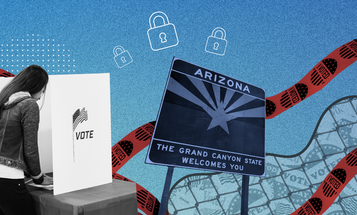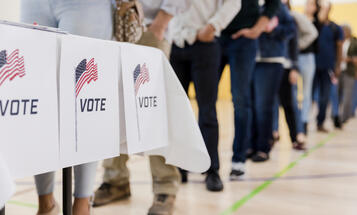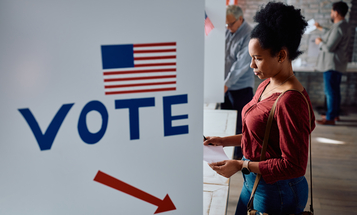
If It's Working, Break It: North Carolina Lawmaker Wants to End SDR, Restrict Early Voting
An influential state lawmaker in North Carolina is launching an effort to make it harder for his state’s citizens to vote. It’s a development that should trouble voters, especially because North Carolina’s election process has been improving lately.
To residents in the many states that force voters to navigate a minefield of confusing rules and unnecessary hurdles, North Carolina’s existing approach seems refreshingly simple. Early voting begins 19 days before Election Day. If you missed the regular voter registration deadline, you can just stop by a one-stop site, fill out your registration form, and cast a ballot at the same time.
North Carolina’s roll-out-the-red-carpet approach debuted in 2008. Demos’ Tova Wang recounted the result in testimony before the House Judiciary Committee the next year:
North Carolina had the largest increase in voter turnout in the country. 236,700 people became new voters through same day registration, and 39% of those were African American. More than 5% of the 4.2 million voters in the 2008 election registered when they went to vote. 691,000 African Americans voted during the early voting period – 51% of the 1.32 million black registered voters in North Carolina.
It would be tough to call this effort anything short of a smashing success. So why would Edgar Starnes, majority leader of the North Carolina House of Representatives, want to turn back the clock?
Starnes’ bill would cut a week off the time allotted for early voting. It would also end Same Day Registration, leaving would-be voters out to dry if they miss the regular deadline.
North Carolina’s system is not perfect – for example, registration is available at the polls only during early voting, not on Election Day – but Starnes’ proposal goes in exactly the wrong direction. And we don’t have to look too far into the past to see how they would turn out. Last year, after Florida officials restricted early voting opportunities, voters were forced to wait at their polling places as long as six hours. The result: 200,000 Floridians didn’t vote because they couldn’t spend half a day standing in line.
Ending Same Day Registration would lead to still more disenfranchisement, since many voters don’t tune in until the final days of an election campaign – often too late to make North Carolina’s regular deadline. In fact, a recent survey commissioned by The Black Youth Project found that among young Americans, lack of voter registration was the most common reason they failed to vote in 2012. SDR also extends the vote to those individuals whose names won’t appear on the poll books at their local precinct because they had changed addresses and don’t think to update their previous registration records.
So why would Starnes want to restrict the voting? Why would he want to end policies that have proven wildly successful at boosting participation in the democratic process?
Unfortunately, the answer may lie in the perceived identity of those most likely to be affected – Democratic-leaning voters. The people of North Carolina should make clear that the desire for partisan advantage is not an appropriate reason to restrict their access to the ballot.



